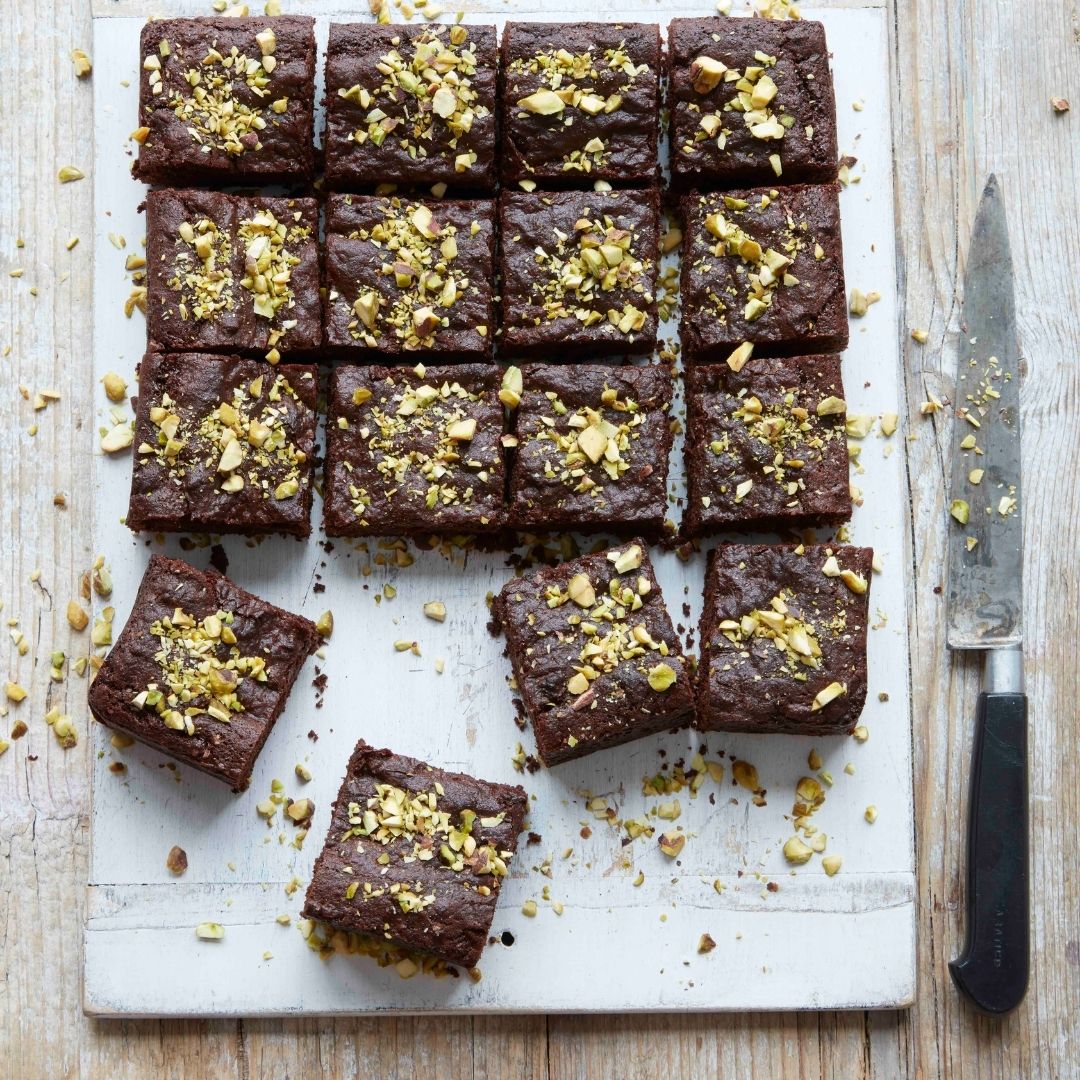Sleep and Reflux with Alison Scott-Wright

We were lucky to have some time with the Alison Scott-Wright, the ‘Magic Sleep Fairy’, who is a leading expert in the field of baby care, sleep and managing infant reflux.
Firstly, what is your background Alison?
Having been a nurse for a number of years I then went to work privately for a colleague of mine who had just had twins, and from that moment on I decided that it was just babies all the way for me! That was 25 years ago now and after the twins had grown up I went to work for another friend of hers who was pregnant and then my whole career just seemed to snowball from there.
So let’s start at the beginning, what is reflux?
Reflux is quite simply the backward flow of stomach contents. For whatever reason the contents don’t stay down in the stomach and they fluctuate back up into the oesophagus and the food pipe and what comes with the stomach content is gastric acid and it is this acid that causes the problem. A lot of adults suffer with it and certainly a lot of babies do.
So many babies seem to suffer from reflux, do they all have it, or is it something else?
Most babies do have a bit of reflux because their tummy is small and the muscles in the oesophagus, the back of the throat and the top of the stomach can be weak and when they have their milk it can often come back up. Years ago, that was called the three-month colic.
There are a number of things that can exacerbate reflux and this has certainly increased over the last 20 years. One of the main things is that with babies having to now sleep on their backs it certainly increases reflux considerably, because when you’ve had a big meal and your tummy is full, you certainly wouldn’t want to lie on your back because you’d feel nauseous, and the same is true for your baby. I know that all mothers now are told to put their baby to sleep on their back for safety which is important, and the guidance is very clear on that, but it may explain why children who used to grow out of it at around 12 weeks still suffer from reflux after that time.
Now I am certainly not saying that you should go against the guidelines, and doing things like tummy time during the day will certainly help to strengthen the baby's core muscles – although a lot of mothers I see find tummy time tricky during the day as their baby doesn’t want to do it too much, so if you can persist it will help.
When does reflux start?
It can actually start when your baby is in the womb. If your baby has lots of hiccups every day and then lots of mucus when it’s born, then it probably has been developing reflux in the womb, as the acid has already been leaking up into the oesophagus. But then there are also lots of babies who are perfectly fine for the first two or three weeks and almost overnight it can seem like a switch has been flicked and the babies are crying and affected by reflux. Others may find that if they have started to introduce formula alongside breastfeeding a little further down the line that the introduction of cow’s milk can have an impact. You will usually know by 12 weeks though if your baby has reflux.
It is very hard for mums. For me, 35 years ago with my son I just didn’t know that it was reflux and the combination of lack of sleep and the dread and stress related with feeding, lead to me being very depressed.
I talk to so many mums about this on a daily basis and I was exactly the same as you Zita. My son is now 35 and I was 21 when I had him and he grew up continually having stomach aches and I just had no idea. I would take him to the doctors and was just told that it is psychosomatic or he was just attention seeking and it was always just dismissed and I would just get so upset about it.
So when you go into a home, how do you initially diagnose how bad the reflux is and do you have any simple tips a mother can do?
The first thing I do is go through a detailed history and ask about the pregnancy, find out whether there were any complications during pregnancy or birth of if mum had to have any antibiotics during the pregnancy and just talk through everything that has happened to the point that I am seeing them. Then we will talk about the feeding schedule, how they are putting the baby to sleep and does the baby sleep, is it arching its back or vomiting and then I will always ask them to send me some poo pictures – my phone would look very odd if someone found it as I have so many on there!
There is a lot that we go through and even if they come to me thinking that their baby just has a sleep problem we will talk through what it can be. For example, a woman came to see me recently as her baby was having trouble sleeping and through the analysis I did it became clear that the baby has a cow’s milk intolerance that was leading to a bloated tummy and causing her difficulties pooing as well as having eczema, which was being treated by steroid cream. So when it was added up it was clear why the baby was struggling to sleep.
Sleep is such a big thing for new mums and I can always remember going to support groups as a new mum and asking other mums how their baby was sleeping and they would always say – "oh amazing, they slept for 12 hours straight through", you could tell that they were lying but it definitely made me feel as though I was doing something wrong and many mums end up doubting themselves and losing confidence.
I know exactly what you mean, as it was always the same with me, however I do feel as though there are more mums who are now more open and honest about their situations – which I really admire – as instead of brushing it all under the carpet and saying it’s fine are portraying a more accurate reflection of what it is really like.
Now to some questions from our followers:
My daughter is on Neocate and was on Omeprazole and it disagreed with her. She was OK without it but teething seems to have started it flaring again. She is only four months, but I feel like I should try vegetable purees, but my worry is that as she doesn’t really nap at the moment and night sleeping is the only thing that seems OK but definitely isn’t perfect, will it eventually settle down?
This is very interesting as the baby has obviously already been diagnosed with a cow’s milk protein intolerance due to being on Neocate formula as well as reflux due to the Omeprazole, but what had been prescribed obviously disagreed with the baby. The question then references that the baby has started teething, although at four months this would be very unlikely. What usually happens at the four month mark is that the symptoms in response to acid reflux change somewhat and as the baby moves towards 16 weeks, and a lot of mums will say that they are starting to teeth now but 9 times out of 10 they will be reflux symptoms. At that age they have found their hands so they will be chewing on them and rather than delicately chewing their fingers it seems as though they are almost trying to find the seat of the pain, which is the acid reflux. They will get the red cheeks as the saliva is acidic – so in this instance I am not convinced that the baby is teething. Starting solids can help, but only really when you have a stable gut and a solid base to work from and you don’t want to create a situation where your baby’s digestive system has more to do when it is already not coping. For me, it would be going back to looking at all of the symptoms the baby has and the indicators it is giving off and then putting a management plan in place. It may be that the baby does need some form of Omeprazole – as it comes in different forms (Omeprazole, Lansoprazole and Nexium) and with the cow’s milk intolerance it may be that Nexium is the better option so I would recommend going back to your paediatrician or doctor to see if there is something else they could prescribe – as getting the reflux sorted in the first instance is going to be key.
To help stabilise the gut, Baba West recommends our Multibiotic powders for Formula Fed or Breastfed Babies
My 5-month old son is breastfed and suffers from silent reflux. Every night when he goes to bed he wakes 30 mins later crying in pain and arching his back. I don’t feed him right before he goes down and try to keep him upright as long as possible but it still seems to bother him regardless. Do you have any tips or tricks that could help? I have read about a number of drugs but I am keen to know about any potential side effects and whether they may have any long-term side effects.
There are a number of things in here. I understand that the mother is trying not to feed the baby too close to bed time. You haven’t mentioned whether you have introduced solids yet, so it could well be that the baby is hungry rather than in pain. It might be reflux symptoms, but this is one of the things that I would have to look at – how much the baby is feeding during the day, have they started solids and how many breastfeeds are you doing. The reason I say that it could be hungry is that once a baby has learned to respond in a certain way to pain it will give off that signal to over tiredness or hunger, and that is where the problems occur with a baby that suffers from reflux as it becomes impossible to read what is wrong. Then, regarding medicines, the first thing to say is that I am not a doctor and can’t prescribe any form of medicine, however in certain situations when you have looked at absolutely everything else, then medicines, probiotics or things such as Colic Calm can be necessary.
My 9-week old suffers from silent reflux and is currently taking Gaviscon, although it doesn’t seem to be hugely effective and causes constipation. I don’t want to go down the medication route, as I believe that this is treating the symptom not the cause. We are querying CMPA (cow’s milk protein allergy) and are currently on the elimination diet, so any advice on getting baby to sleep in a crib would be most appreciated.
It appears that the baby has already been diagnosed with reflux and sadly it sounds quite severe unfortunately. I do advise talking to doctors to get Gaviscon prescribed at times as it can be a useful interim step just while we get other things in place but it isn’t something I would use long-term. Quite simply, if your baby is on Gaviscon and not pooing every day and getting blocked up, the doctor may prescribe a form of laxative and this is something that I definitely don’t agree with as it is yet another thing that the gut has to process – at a time when we are just trying to stabilise the gut and not put more things in. The simplest thing to do if your baby is struggling to poo is to buy some infant glycerin suppositories, which are available over the counter and don’t require a subscription and they should typically help the baby to poo within 10-15 minutes. Then, once the baby becomes used to taking Gaviscon, they will eventually learn to metabolise it themselves. Regarding the baby not going down in its crib, the reason it isn’t sleeping is that the reflux hasn’t been resolved, so I would advise this person speaks to an expert (my details are below) so that they can try and get to the bottom of the reflux issue.
Our 9-week old has started to be hysterical just before we try and put him down to sleep. He has reflux but is on Losec and it doesn’t seem to be hunger, poo or urine related. Do we leave him to cry it out?
Absolutely not – you definitely shouldn’t leave them to cry it out at 9 weeks. What I would suggest is that the reason the baby is going hysterical at bedtime is that he is overtired. I would have to look at the baby’s full daytime schedule, but if the reflux is managed – which it seems to be – that is the most likely thing. A number of people will say not to let your baby sleep too long in the day as they won’t sleep at night but the opposite actually occurs and the reason is that when baby’s get overtired, sleep deprivation will cause stress, and stress in our bodies will produce cortisol (the hormone that keeps you awake). For a baby that is 9 weeks old I would expect that baby to be having a minimum of four hours of sleep during the day.
My 8-week old son is starting to refuse his bedtime feed, sometimes having an expressed bottle but often refusing the breast altogether. He is on Omeprazole for his reflux, sleeps on his front and has been in a good routine from an early age. We have ruled out any genuine issues (temperature, hunger, overtiredness etc.) do we start with reassurance training and let him cry it out?
My sleep training technique is not cry it out and with young babies like this it isn’t about ‘sleep training’ so to speak. The person references that the baby isn’t overtired, but, as with the previous question, that would be my first thought – as the reason he may take the bottle rather than the boob is that breastfeeding can be hard work if they are tired. If it isn’t tiredness though and the baby is genuinely not wanting to go and lie down, there are more gentle ways of getting them to sleep. If you put him down in his cot and he starts to cry I would pat his bottom (as in this instance they are sleeping on their tummy) and if he doesn’t stop after 5 minutes I will pick him up and soothe him before putting him back down again and if he continues to cry I will pat his bottom again. Then it is just about perseverance and continuing this process until they eventually fall asleep. If your baby sleeps on their back, then rather than tapping their bottom, you can put your hand on their tummy and gently rock them instead.
Can Infacol and Gaviscon be used together? My baby has been prescribed Gaviscon and was already using Infacol but I am not sure whether the Infacol is making the reflux worse.
So many people reach for Infacol and I really don’t find that it brings much to the party to be honest. It has a very orangey tang to it and I think it can exacerbate acid at a time you’re trying to get rid of it, so I would recommend trying to phase it out over a few days and just stick with the Gaviscon (remembering what I said in the answer above about constipation though).
To speak to Alison yourself about any reflux or sleep problems, you can contact her at www.alisonscott-wright.com or follow her on Instagram @magic_sleep_fairy



